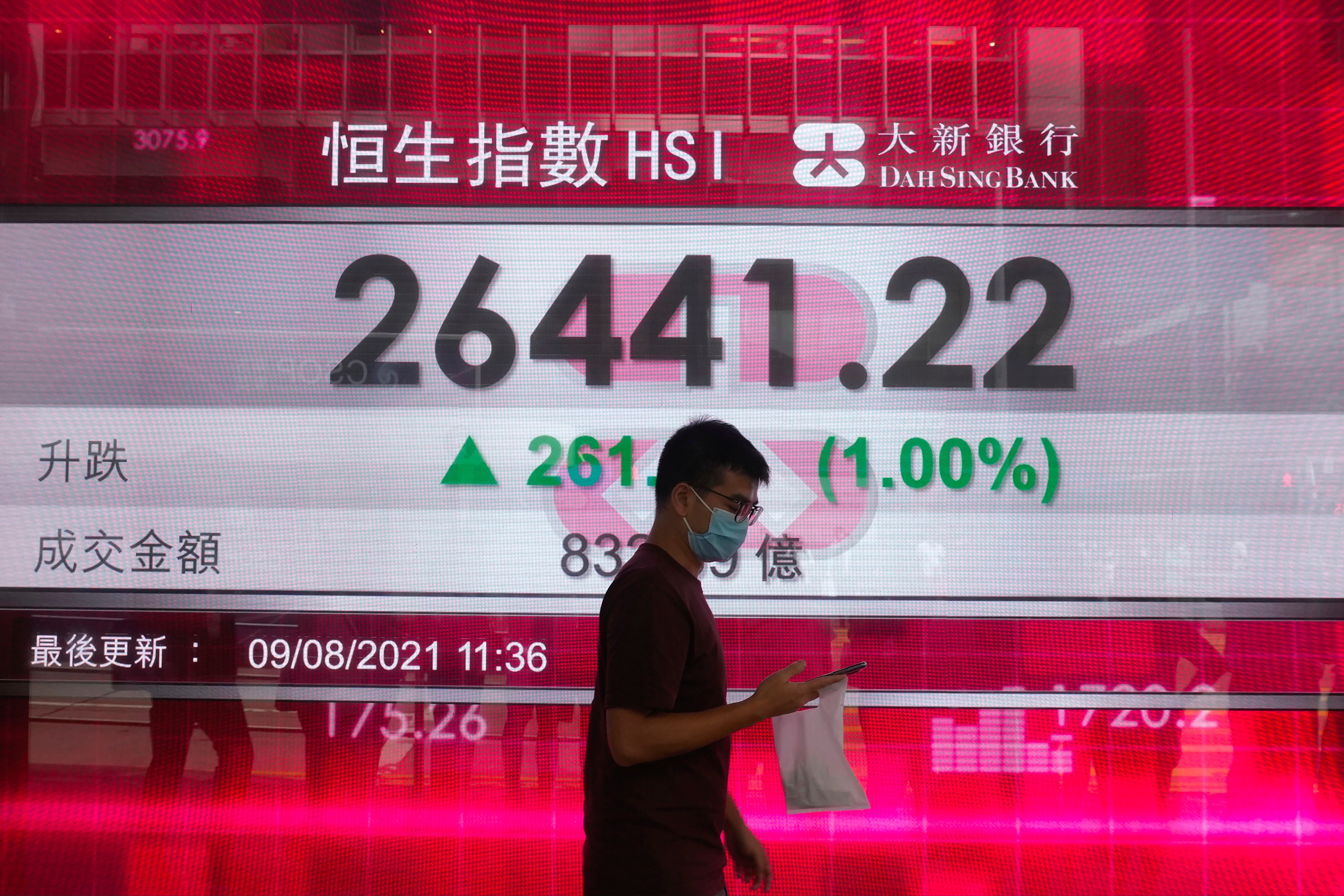Asian stocks follow Wall Street up as virus curbs tightened
Asian stock markets have followed Wall Street higher after U.S. hiring improved and China and Australia tightened anti-virus controls that threaten to weigh on an economic recovery

Your support helps us to tell the story
From reproductive rights to climate change to Big Tech, The Independent is on the ground when the story is developing. Whether it's investigating the financials of Elon Musk's pro-Trump PAC or producing our latest documentary, 'The A Word', which shines a light on the American women fighting for reproductive rights, we know how important it is to parse out the facts from the messaging.
At such a critical moment in US history, we need reporters on the ground. Your donation allows us to keep sending journalists to speak to both sides of the story.
The Independent is trusted by Americans across the entire political spectrum. And unlike many other quality news outlets, we choose not to lock Americans out of our reporting and analysis with paywalls. We believe quality journalism should be available to everyone, paid for by those who can afford it.
Your support makes all the difference.Asian stock markets followed Wall Street higher Monday after U.S. hiring improved and China and Australia tightened anti-virus controls that threaten to weigh on an economic recovery.
Shanghai, Hong Kong and Sydney advanced. South Korea declined. Japanese markets were closed for a holiday.
On Friday, Wall Street ended at a new high after a government report showed U.S. in July was stronger than forecast.
Investors have been encouraged by higher U.S. corporate profits and the global spread of coronavirus vaccinations. But the delta variant’s spread has prompted some governments to reimpose controls on business and travel.
China has canceled airline flights as it tries to stop a rash of outbreaks. Australia's two most populous states have told the public to stay home except to go to work or for a handful of other reasons.
“The right question for everyone to be asking, including financial market participants, is when lockdowns will come to other economies,” said Carl B. Weinberg of High Frequency Economics in a report. “This is central bankers’ worst nightmare coming true.”
The Shanghai Composite Index gained 1.1% to 3,496.60 after Chinese exports rose 18.9% in July over a year earlier. The country’s global trade surplus was $56.6 billion.
Hong Kong’s Hang Seng gained 0.8% to 26,386.21. The Kospi in Seoul fell 0.3% to 3,261.57 and the S&P-ASX 200 in Sydney gained 0.1% to 7,546.90.
India's Sensex opened up 0.3% at 54,439.58. New Zealand and Jakarta declined while Bangkok gained.
China has cut off most access to a city of 1.5 million people, canceled airline flights and told the public to avoid travel if possible after a spate of cases tied to travelers from overseas who were infected with the delta variant.
Australia’s central bank governor, Philip Lowe, warned Friday the economy is likely to shrink in the quarter ending in September after health emergencies were declared in New South Wales, where populous Sydney is located, and Victoria, with Melbourne and major companies.
On Friday, Wall Street's benchmark S&P 500 index rose 0.2% to 4,436.52 after the Labor Department reported employees added 943,000 workers in July, well above forecasts, and wages rose. The index ended up 0.9% for the week.
Economists said the report will give the Federal Reserve another reason to reduce bond purchases that inject money into the financial system.
The Dow Jones Industrial Average gained 0.4% to 35,208.51. The Nasdaq fell 0.4% to 14,835.76.
In energy markets, benchmark U.S. crude tumbled $1.49 per barrel to $66.79 in electronic trading on the New York Mercantile Exchange. The contract fell 81 cents on Friday to $68.28. Brent crude, the price standard for international oils, lost $1.50 to $69.20 per barrel in London. It fell 59 cents the previous session to $70.62.
The dollar edged down to 110.21 yen from Friday’s 110.23. The euro gained to $1.1762 from $1.1758.